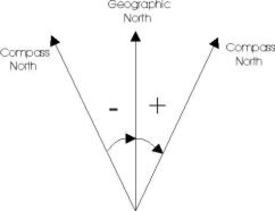Heavy Lifting defined--MUST READ
Replies
-
Meh, I'd also disagree that essentially power lifting is the only lifting heavy there is. I do splits of 8-10 reps with a lot of isolation exercises but do them to failure and increase the weight almost every time I work out. Id' count that as lifting heavy. But to each their own. I'll probably segue my way into stronglifts or whatever sooner than later, but I get a little tired of the "YEAH BRAH IF YOU DO IT ANY OTHER WAY UR DUMB LOL" sentiment that's getting rather common around here.
I don't think he was saying it was the only kind of lifting. Different kinds of lifting and routines produce different results. "Lifting heavy" is generally synonymous with progressive, functional strength training programs like SS and SL...where the emphasis is on functional strength gains, not necessarily hypertrophy or physique (though those things are greatly improved with functional strength training programs).
Conversely, a body builder may use a basic heavy lifting routine as the core of their workout, but they're going to spend a lot of time working specific muscles in isolation with lower weight and higher reps (8-12) for hypertrophy...but they're not going to make the same strength gains.
Yet another example would be circuit type training like P90X or similar which doesn't involve a lot of heavy lifting and pulling, but working muscles to exhaustion with body weight or lighter weights, increasing muscular endurance with some, but minimal strength gains and minimal hypertrophy.
All means to different ends...all involve some sort of lifting, with heavy being a relative term. I would imagine as one becomes more advanced, it would be necessary to incorporate different types of lifting to continue progression. Though I would generally agree that body building and circuit style training do not constitute "lifting heavy" as it is generally used in reference to a full body, compound, functional strength routine. I've known this to be "lifting heavy" long before MFP and as far back as high school and training for football.0 -
Bravo, sir.0
-
bump0
-
To the OP:
I've seen you post before and you seem to have a lot of knowledge. If you don't mine me asking, in your opinion, If my goal is to look good in a swimsuit (and assuming a good diet) is something like Stronglifts more effective than a circuit-based program like ChaLean Extreme or Rushfit?
I'm not trying to be snarky. I'm genuinely curious.
IMO if you just want a swimsuit body you still get there quicker with a focused heavy lifting program.
It's like comparing a jet to a greyhound bus. We both start in Los Angeles. I want to go all the way to NYC (bulkytown) and you just want to go to Vegas (swimsuitville). Sure, you're not going the same distance I am, but wouldn't you want to catch the 45 min plane ride instead of a 10 hour bus trip? The weights will get you to where you want to be, wherever that is, much faster.
I love this analogy!0 -
The strongest powerlifters started their cycles at 8-10 reps, didn't do full body routines, did high rep isolation work and rarely trained to failure or missed reps.0
-
:blushing: I'm feeling a little verklempt at being the poster child for women heavy lifting.
And I'm obviously watching too much Fran Drescher on TV Land if I'm using words like verklempt. :bigsmile:0 -
bump0
-
Tagging for later review with He Who Coaches.0
-
bump0
-
I'm with Waldo. I agree with everything in the OP except spllits not being heavy lifting. You can still do the progression mentioned in the OP as well as adding weight every week in a split.
Tell me, when working in a split, just how much of that is isolation work? No offense, it's just that heavy, as in orthodox heavy lifting/powerlifting based training is 100% compound. When you work in splits, you DO place a focus on isolation training which is a completely different category of training with a different goal.
My last split (I just started Madcow's 5x5) was pretty much all compound lifts. 2 days a week bench, overhead press and bent over rows, two days of squats and deadlifts. If I felt like it, I might've thrown in shrugs or flys or calf raises, but I wasn't doing bicep curls or anything. My husband's sole focus is to gain strength, and his lifts go up quite often, and he does a 5 day split. I consider him a heavy lifter since he's using weights upwards of 400 (I think he can deadlift over 500) pounds on his big lifts. Yeah, he does isolation work, but he also does big, compound lifts. I guess we're just calling different things "heavy" because, at least in the case of my husband, looking at the ginormous amounts of weights he's lifting, and for me, I'm looking at the fact that, while the number is relatively small, I am working really, really hard, and pushing to failure in a low number of reps.0 -
bump0
-
To the OP:
I've seen you post before and you seem to have a lot of knowledge. If you don't mine me asking, in your opinion, If my goal is to look good in a swimsuit (and assuming a good diet) is something like Stronglifts more effective than a circuit-based program like ChaLean Extreme or Rushfit?
I'm not trying to be snarky. I'm genuinely curious.
IMO if you just want a swimsuit body you still get there quicker with a focused heavy lifting program.
It's like comparing a jet to a greyhound bus. We both start in Los Angeles. I want to go all the way to NYC (bulkytown) and you just want to go to Vegas (swimsuitville). Sure, you're not going the same distance I am, but wouldn't you want to catch the 45 min plane ride instead of a 10 hour bus trip? The weights will get you to where you want to be, wherever that is, much faster.
LOVE this! This analogy is excellent. I essentially have a light bulb above my head right now.0 -
:blushing: I'm feeling a little verklempt at being the poster child for women heavy lifting.
And I'm obviously watching too much Fran Drescher on TV Land if I'm using words like verklempt. :bigsmile:
People generally know who you are and know your story around here. What they don't know is what you mean when you say you got there by heavy lifting. So they pop in ChaLEAN Extreme or a Jillian Michaels DVD thinking that's what it is.0 -
To the OP:
I've seen you post before and you seem to have a lot of knowledge. If you don't mine me asking, in your opinion, If my goal is to look good in a swimsuit (and assuming a good diet) is something like Stronglifts more effective than a circuit-based program like ChaLean Extreme or Rushfit?
I'm not trying to be snarky. I'm genuinely curious.
It depends on what constitutes looking good in a swimsuit. The truth is, if your goal revolves primarily around the way you look, most DVD-based "body transformation" programs will get you there just as well provided you observe a healthy diet and watch calorie intake during the program. What makes these heavy lifting based programs generally more preferable is the functional strength gains you see from them, which are unequaled by the DVD-based programs, as well as the fact that you don't have to work out 5-6 days a week for an hour or more a day. Why do I stress an importance on functional gains? Well, I've always been a car guy. And one thing that bugged me a lot about the car scene after the movie The Fast & The Furious came out was the way people would modify their cars to LOOK like race cars but do minimal engine upgrades. What they ended up with was a car that talked the talk, but couldn't walk the walk, so to speak. People who go through these DVD based body transformation programs sort of experience the same thing. Upon completion, they LOOK every bit the part of an athlete. But when asked to perform like their body indicates they could, they come up short. Doing programs such as Stronglifts equate to upgrading the engine along with the outside, so that the body is every bit as capable as it looks it is. Make sense?
Thank you! I'm 6 weeks into Stronglifts and not loving the results---but I will stick with it and upgrade my engine. 0
0 -
I'm with Waldo. I agree with everything in the OP except spllits not being heavy lifting. You can still do the progression mentioned in the OP as well as adding weight every week in a split.
Tell me, when working in a split, just how much of that is isolation work? No offense, it's just that heavy, as in orthodox heavy lifting/powerlifting based training is 100% compound. When you work in splits, you DO place a focus on isolation training which is a completely different category of training with a different goal.
My last split (I just started Madcow's 5x5) was pretty much all compound lifts. 2 days a week bench, overhead press and bent over rows, two days of squats and deadlifts. If I felt like it, I might've thrown in shrugs or flys or calf raises, but I wasn't doing bicep curls or anything. My husband's sole focus is to gain strength, and his lifts go up quite often, and he does a 5 day split. I consider him a heavy lifter since he's using weights upwards of 400 (I think he can deadlift over 500) pounds on his big lifts. Yeah, he does isolation work, but he also does big, compound lifts. I guess we're just calling different things "heavy" because, at least in the case of my husband, looking at the ginormous amounts of weights he's lifting, and for me, I'm looking at the fact that, while the number is relatively small, I am working really, really hard, and pushing to failure in a low number of reps.
One of the most common misconceptions I see on here is that people take it personally when it's pointed out that what they're doing isn't heavy lifting, as if people are talking down about how much they can or can't lift. It's in relation to your own 1rm. Nothing else. And it IS relative from person to person. A 125 lb deadlift would be a heavy lift to one person, but a 300 lb deadlift might not be heavy to another. It is all in relation to 1rm. 0
And it IS relative from person to person. A 125 lb deadlift would be a heavy lift to one person, but a 300 lb deadlift might not be heavy to another. It is all in relation to 1rm. 0 -
Bump0
-
Oh, I wasn't taking it personally at all. I was just pointing out why I consider "heavy lifting" what I consider it.0
-
Good info, and I love the Fast & the Furious analogy. As a car girl, I cannot stand to see a beautiful 70's muscle car that sounds nice because someone tweaked the muffler, but cannot beat a Prius off the line. That's just wrong.0
-
I'm with Waldo. I agree with everything in the OP except spllits not being heavy lifting. You can still do the progression mentioned in the OP as well as adding weight every week in a split.
I agree with Waldo too. Thats just my OPINION...........Once past begginner stage and I mean after years of lifting etc.. Splits can also be done for heavy lifting.
Bench and back Rows etc.....with Dips etc... as an example
Its all good as long as there is some eye candy at da gymm!!!!! damn!!!:bigsmile:0 -
As a car nut, I appreciated your car analogy. I'd rather have a 500hp sleeper in primer than a sleek, fancy, wild looking car that can't get out of its own way. I approach my weight training the same way.0
-
Tagging to keep reading. Great information from some great people in here!0
-
Bumping for later...0
-
:blushing: I'm feeling a little verklempt at being the poster child for women heavy lifting.
And I'm obviously watching too much Fran Drescher on TV Land if I'm using words like verklempt. :bigsmile:
Your after says it all. :flowerforyou:0 -
I'm with Waldo. I agree with everything in the OP except spllits not being heavy lifting. You can still do the progression mentioned in the OP as well as adding weight every week in a split.
I agree with Waldo too. Thats just my OPINION...........Once past begginner stage and I mean after years of lifting etc.. Splits can also be done for heavy lifting.
Bench and back Rows etc.....with Dips etc... as an example
Its all good as long as there is some eye candy at da gymm!!!!! damn!!!:bigsmile:
Dreya Weber (the girl in most of the P90X videos) ain't got anything on some of the girls I've seen working out at Gold's =P
And yeah as I mentioned above this post was mainly for beginners. I understand that at more advanced levels you start seeing lots of exceptions to the rule regarding splits, but people at that level definitely don't need to reference a post telling people the difference between the DVDs they're doing at home and heavy lifting programs.0 -
I think it's worth considering that ChaLean and Jillian Michaels etc etc might be really good and useful entry points into lifting for people who'd never think of it otherwise. Lots of people do those programs, see results and want more.
Also, linear progression is great for healthy, uninjured young people but not necessarily amazing for those who have NO training history, are older, and/or have taken a few lumps, which is really A LOT more people than you'd think. My view is people should start with very conservative programs, get form DOWN, and get to know their own bodies before testing them too aggressively. Especially if they're coming from a place of sedentariness/ill health.0 -
I think it's worth considering that ChaLean and Jillian Michaels etc etc might be really good and useful entry points into lifting for people who'd never think of it otherwise. Lots of people do those programs, see results and want more.
Also, linear progression is great for healthy, uninjured young people but not necessarily amazing for those who have NO training history, are older, and/or have taken a few lumps, which is really A LOT more people than you'd think. My view is people should start with very conservative programs, get form DOWN, and get to know their own bodies before testing them too aggressively. Especially if they're coming from a place of sedentariness/ill health.
Now that I TOTALLY understand. I actually had to stop because it wasn't safe for ME once I reached a certain point because I have motor control problems as a result of a neurological disorder. I put together my own routines working around it that are in NO way heavy lifting oriented (in fact bodyweight training is the basis of my programs). That is where my real area of specialty lies, putting together high intensity training plans for people with disabilities that prevent them from doing orthodox training methods.0 -
To the OP:
I've seen you post before and you seem to have a lot of knowledge. If you don't mine me asking, in your opinion, If my goal is to look good in a swimsuit (and assuming a good diet) is something like Stronglifts more effective than a circuit-based program like ChaLean Extreme or Rushfit?
I'm not trying to be snarky. I'm genuinely curious.
IMO if you just want a swimsuit body you still get there quicker with a focused heavy lifting program.
It's like comparing a jet to a greyhound bus. We both start in Los Angeles. I want to go all the way to NYC (bulkytown) and you just want to go to Vegas (swimsuitville). Sure, you're not going the same distance I am, but wouldn't you want to catch the 45 min plane ride instead of a 10 hour bus trip? The weights will get you to where you want to be, wherever that is, much faster.
Love this!! Makes perfect sense to me!0 -
I'm with Waldo. I agree with everything in the OP except spllits not being heavy lifting. You can still do the progression mentioned in the OP as well as adding weight every week in a split.
Tell me, when working in a split, just how much of that is isolation work? No offense, it's just that heavy, as in orthodox heavy lifting/powerlifting based training is 100% compound. When you work in splits, you DO place a focus on isolation training which is a completely different category of training with a different goal.
This is wrong. I also disagree with your original post. All of this is just wrong. First of all, the term "heavy lifting" is a very general term that you are trying to place very specific guidelines with. If people on MFP are trying to say they lift like powerlifters, I'm sure they would say, "I lift like a powerlifter." When a person says, "I lift heavy weights," of course that weight is going to be what's heavy for them for the number of reps and sets they're trying to accomplish. Heavy lifting is not confined to specific powerlifting compound moves or weight range, it's a general term. Your post is bogus, imo.
I'm also not even sure why you brought the DVD's into it. I've never once seen an MFPer say they lift heavy and do a DVD program. All the people on MFP I see that say they lift heavy attend a gym. DVD programs aren't designed for you to lift heavy weights, they're designed for higher reps with a lower weight and they're typically not for strength gains.0 -
bump0
-
I think it's worth considering that ChaLean and Jillian Michaels etc etc might be really good and useful entry points into lifting for people who'd never think of it otherwise. Lots of people do those programs, see results and want more.
Also, linear progression is great for healthy, uninjured young people but not necessarily amazing for those who have NO training history, are older, and/or have taken a few lumps, which is really A LOT more people than you'd think. My view is people should start with very conservative programs, get form DOWN, and get to know their own bodies before testing them too aggressively. Especially if they're coming from a place of sedentariness/ill health.
Now that I TOTALLY understand. I actually had to stop because it wasn't safe for ME once I reached a certain point because I have motor control problems as a result of a neurological disorder. I put together my own routines working around it that are in NO way heavy lifting oriented (in fact bodyweight training is the basis of my programs). That is where my real area of specialty lies, putting together high intensity training plans for people with disabilities that prevent them from doing orthodox training methods.
Is that so?? Well, first, amazing, second, shoot, let's talk sometime! I could use your help! And prob many others - there's gold in them thar hills 0
0
This discussion has been closed.
Categories
- All Categories
- 1.4M Health, Wellness and Goals
- 398.4K Introduce Yourself
- 44.7K Getting Started
- 261K Health and Weight Loss
- 176.4K Food and Nutrition
- 47.7K Recipes
- 233K Fitness and Exercise
- 462 Sleep, Mindfulness and Overall Wellness
- 6.5K Goal: Maintaining Weight
- 8.7K Goal: Gaining Weight and Body Building
- 153.5K Motivation and Support
- 8.4K Challenges
- 1.4K Debate Club
- 96.5K Chit-Chat
- 2.6K Fun and Games
- 4.7K MyFitnessPal Information
- 17 News and Announcements
- 21 MyFitnessPal Academy
- 1.5K Feature Suggestions and Ideas
- 3.2K MyFitnessPal Tech Support Questions




















